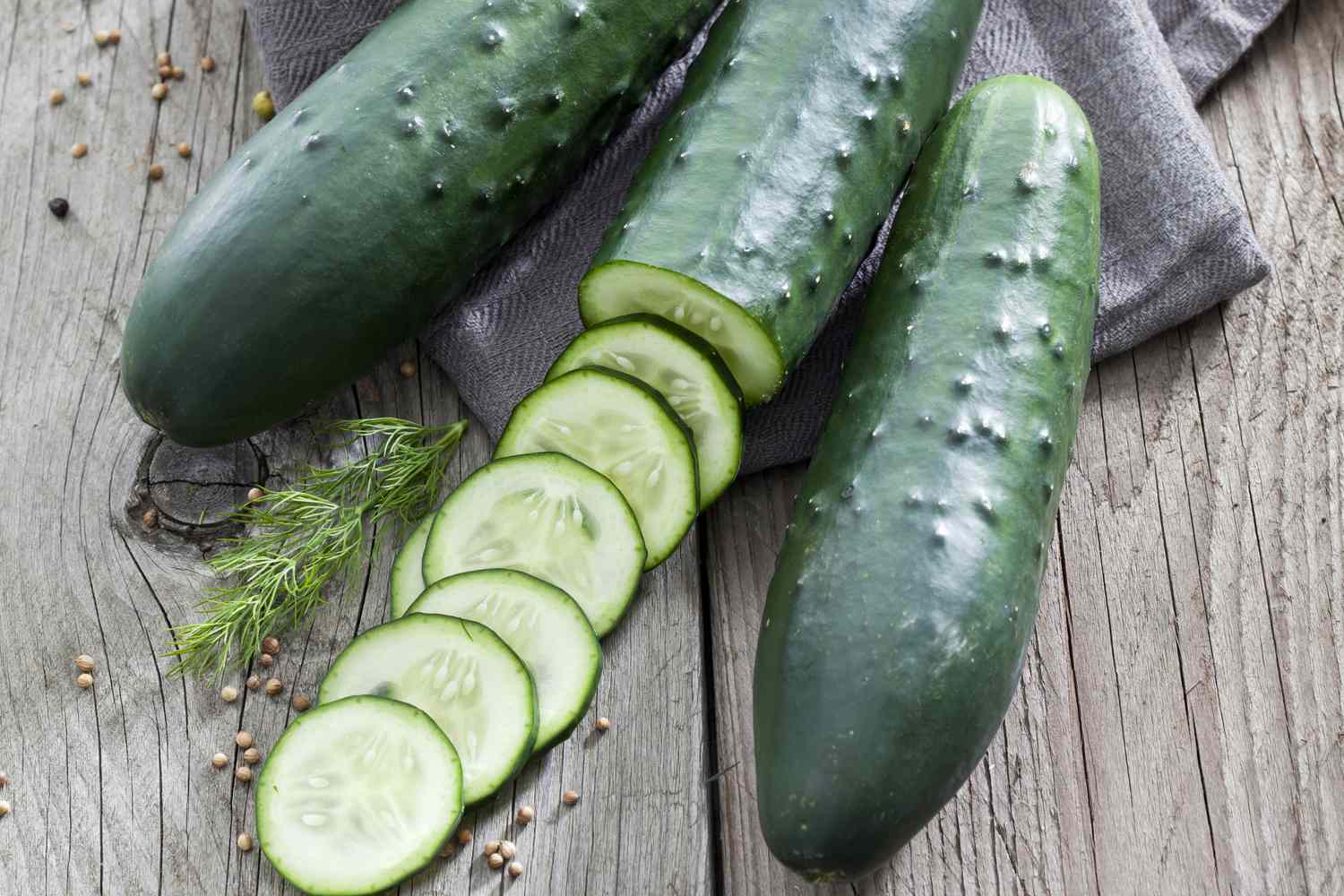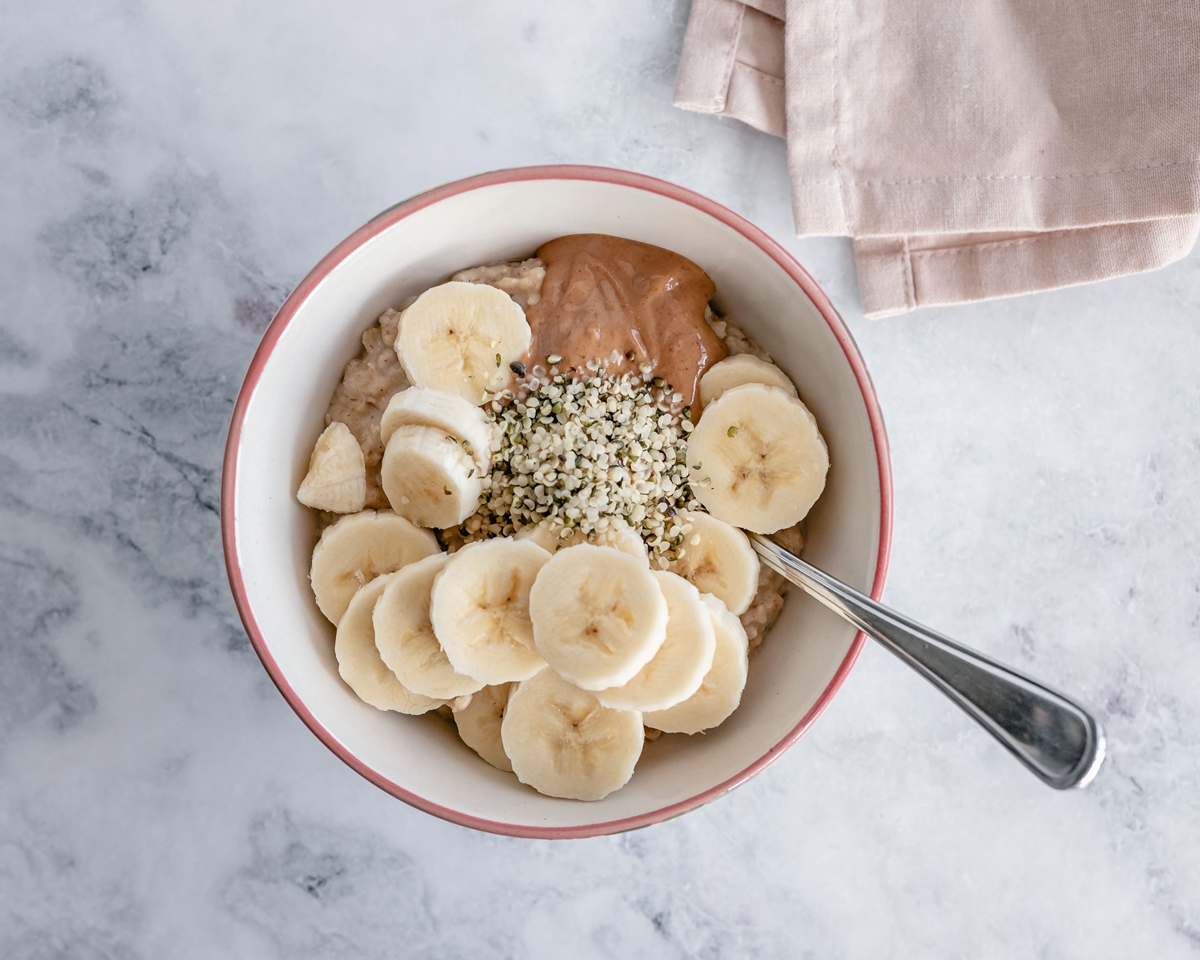Home>Misc>Featured>What Are The Health Benefits Of Cucumbers


Featured
What Are The Health Benefits Of Cucumbers
Published: September 8, 2023
Discover the featured health benefits of cucumbers, including hydration, weight loss support, skin rejuvenation, and more. Enhance your well-being with this versatile vegetable.
Introduction
Cucumbers are not just a refreshing addition to salads and sandwiches; they also offer a range of health benefits. This versatile vegetable is packed with essential nutrients, including vitamins, minerals, and antioxidants, making it a valuable addition to a balanced diet.
With their high water content (about 96%), cucumbers are an excellent choice for staying hydrated and promoting healthy digestion. They are also low in calories and contain fiber, making them a favorable option for weight loss and management.
Furthermore, cucumbers contribute to improving skin and hair health due to their hydrating properties and the presence of vitamins C and K. In addition to promoting a healthy complexion, cucumbers can also support heart health, bone health, and blood sugar control.
Not only do cucumbers offer numerous health benefits, but they also add a refreshing and crunchy element to meals. Incorporating cucumbers into your diet can be a simple and enjoyable way to support overall wellness.
In this article, we will delve deeper into the nutritional value of cucumbers and explore the various health benefits they provide. So, let’s discover how cucumbers can contribute to a healthier you!
Nutritional Value of Cucumbers
Cucumbers are not only refreshing and delicious but also offer an array of essential nutrients. These green vegetables are low in calories and fat, making them a guilt-free addition to meals and snacks. Let’s take a closer look at the nutritional profile of cucumbers:
- Vitamins: Cucumbers are a good source of vitamins such as vitamin C, vitamin K, and several B vitamins, including thiamin, riboflavin, and niacin. Vitamin C is an antioxidant that plays a crucial role in supporting the immune system and promoting collagen production. Vitamin K contributes to the body’s blood clotting abilities, while the B vitamins help maintain energy levels and support brain function.
- Minerals: Cucumbers are rich in minerals like potassium, magnesium, and manganese. Potassium is essential for maintaining healthy blood pressure levels and proper muscle function. Magnesium is involved in over 300 biochemical reactions in the body and supports nerve and muscle function. Manganese is necessary for bone health and plays a role in metabolism and antioxidant function.
- Dietary Fiber: Cucumbers contain fiber, which aids in digestion and promotes a feeling of fullness. Fiber is crucial for maintaining a healthy digestive system and can help prevent constipation.
- Antioxidants: Cucumbers contain various antioxidants, including flavonoids and tannins, which help protect the body against oxidative stress caused by free radicals. These antioxidants have anti-inflammatory properties and may play a role in reducing the risk of chronic diseases, such as heart disease and certain types of cancer.
- Water: With a high water content, cucumbers are an excellent choice for staying hydrated. Proper hydration is essential for various bodily functions, including temperature regulation, nutrient transportation, and joint lubrication.
The nutritional value of cucumbers makes them a beneficial addition to a well-rounded diet. Whether consumed raw in salads or blended into refreshing smoothies, cucumbers offer a plethora of essential vitamins, minerals, and antioxidants that support overall health and well-being.
Hydration and Digestion
With their high water content, cucumbers are an excellent choice for maintaining proper hydration. Adequate hydration is crucial for supporting overall health and well-being, as it helps regulate body temperature, aids in nutrient transportation, and promotes efficient digestion.
Cucumbers are comprised of approximately 96% water, making them an incredibly hydrating food. Consuming foods with high water content, like cucumbers, can contribute to staying hydrated throughout the day, especially during hot weather or periods of physical activity.
In addition to their hydrating properties, cucumbers also contain dietary fiber, which plays a vital role in promoting healthy digestion. Fiber adds bulk to the stool, preventing constipation and promoting regular bowel movements. It also helps to maintain a healthy gut microbiome by providing nourishment for beneficial gut bacteria.
Moreover, the high water content of cucumbers aids in softening the stool, further facilitating smooth and comfortable bowel movements. This can be particularly beneficial for individuals who struggle with digestive issues, such as constipation or irregularity.
Cucumbers are also known to have a cooling effect on the digestive system, making them soothing for those experiencing indigestion or bloating. They can help alleviate discomfort and promote optimal digestion, allowing the body to efficiently absorb essential nutrients from the foods we consume.
Whether enjoyed on their own or added to salads and smoothies, cucumbers contribute to hydration and play a crucial role in maintaining a healthy digestive system. Including this hydrating and fiber-rich vegetable in your diet can contribute to overall digestive wellness and support your body’s hydration needs.
Weight Loss and Management
If you’re looking to shed a few extra pounds or maintain a healthy weight, cucumbers can be a valuable addition to your diet. These low-calorie vegetables are an excellent choice for weight loss and management due to their high water content and fiber.
With about 95% water content, cucumbers are incredibly low in calories. They provide a satisfying crunch and help to add volume to meals without adding excessive calories. This means you can enjoy a generous serving of cucumbers while keeping your overall calorie intake in check.
In addition to their low calorie count, cucumbers are also a good source of dietary fiber. Fiber is known for its ability to promote feelings of fullness and satiety, which can help curb overeating and prevent unnecessary snacking between meals.
Moreover, the fiber in cucumbers aids in digestion and contributes to a healthy gut. A healthy gut microbiome has been linked to weight management and overall well-being.
Cucumbers can be a versatile and flavorful addition to your weight loss or weight management plan. They can be enjoyed in various ways, such as sliced in salads, chopped in vegetable stir-fries, or blended into refreshing smoothies. The refreshing and hydrating nature of cucumbers makes them an excellent choice for satisfying cravings and providing a low-calorie option to help you reach your weight goals.
Remember to incorporate cucumbers alongside a balanced diet and regular exercise for effective weight loss and management. As with any weight loss plan, it’s important to consult with a healthcare professional or registered dietitian for personalized guidance and support.
Skin and Hair Health
When it comes to promoting healthy skin and luscious hair, cucumbers are a natural beauty ally. Their hydrating properties, along with the presence of important vitamins and minerals, contribute to maintaining vibrant skin and strong, shiny hair.
The high water content of cucumbers helps to hydrate the skin from within, keeping it plump and moisturized. Adequate hydration is essential for maintaining the skin’s elasticity and preventing dryness, which can lead to dullness and wrinkles.
In addition to hydration, cucumbers contain vital nutrients, such as vitamin C and vitamin K, which play a role in promoting healthy skin and hair. Vitamin C is known for its antioxidant properties, which help protect the skin from damage caused by free radicals. It also aids in collagen production, a protein that supports the skin’s structure and prevents sagging.
Vitamin K contributes to the health of the skin by promoting proper blood circulation. Improved blood circulation can help reduce the appearance of dark circles, puffiness, and inflammation, giving your skin a more refreshed and youthful look.
Cucumbers can also be used externally to soothe and rejuvenate the skin. Placing cucumber slices on the eyes can reduce puffiness and dark circles, providing a refreshing and cooling effect. Cucumber-based face masks or cucumber-infused skincare products can help hydrate the skin, reduce redness, and promote a healthy complexion.
When it comes to hair health, cucumbers can be beneficial as well. Their high water content helps to hydrate the scalp, preventing dryness and itchiness. Additionally, the presence of vitamins and minerals nourishes the hair follicles, promoting stronger and healthier hair growth.
By incorporating cucumbers into your diet and skincare routine, you can support the health of your skin and hair naturally. Remember to supplement your cucumber intake with a well-rounded skincare routine and good hair care practices for optimal results.
Heart Health
Taking care of your heart is essential for maintaining overall health and well-being, and cucumbers can play a role in supporting cardiovascular health. These refreshing vegetables offer several benefits that contribute to a healthy heart.
One way cucumbers promote heart health is through their low sodium content. High sodium intake is associated with an increased risk of high blood pressure, which can lead to various cardiovascular problems. Cucumbers, being naturally low in sodium, are a heart-healthy choice for individuals looking to maintain healthy blood pressure levels.
Cucumbers are also rich in potassium, an essential mineral that plays a crucial role in heart health. Potassium helps regulate blood pressure by counteracting the effects of sodium, promoting proper functioning of the heart muscle, and supporting the balance of electrolytes in the body.
In addition to their potassium content, cucumbers contain antioxidants, such as flavonoids and tannins. These antioxidants help reduce inflammation and protect blood vessels from damage caused by oxidative stress. By reducing inflammation and oxidative stress, cucumbers can contribute to the prevention of heart disease and other cardiovascular complications.
Furthermore, cucumbers offer a good amount of dietary fiber. Fiber has been linked to a reduced risk of heart disease and helps lower levels of “bad” LDL cholesterol. By promoting healthy cholesterol levels, cucumbers support heart health and reduce the risk of developing heart-related conditions.
Although cucumbers on their own may not provide all the necessary nutrients for optimum heart health, they can contribute to a heart-healthy diet when combined with other nutrient-rich foods. By incorporating cucumbers into salads, sandwiches, or as a refreshing snack, you can add a nutritious boost to your overall heart-healthy eating plan.
Bone Health
Keeping your bones strong and healthy is crucial for overall well-being, and cucumbers can play a role in supporting bone health. While cucumbers may not be as well-known for their calcium content as dairy products, they offer other essential nutrients that contribute to maintaining strong bones.
One of the key nutrients found in cucumbers is vitamin K. Vitamin K is necessary for the production of certain proteins involved in bone mineralization and strength. Adequate vitamin K intake may help reduce the risk of fractures and improve bone density.
Cucumbers are also a source of minerals like magnesium and manganese, which play vital roles in bone health. Magnesium is involved in several processes related to bone formation, such as calcium absorption and the conversion of vitamin D into its active form. Manganese contributes to the formation and maintenance of healthy bones and may help prevent osteoporosis.
In addition to providing specific bone-building nutrients, cucumbers also contribute to overall hydration. Dehydration can affect the water content in the bones, reducing their strength and flexibility. By staying well-hydrated with foods like cucumbers, you can support the health and integrity of your bones.
While cucumbers alone may not provide all the nutrients needed for optimal bone health, they can be a valuable addition to a well-rounded diet that includes other bone-nourishing foods. Pair cucumbers with sources of calcium, such as dairy products, leafy greens, and fortified foods, to ensure you’re meeting your daily requirements for strong and healthy bones.
Blood Sugar Control
Maintaining stable blood sugar levels is crucial for overall health, especially for individuals with diabetes or those at risk of developing the condition. Cucumbers can be a beneficial addition to a balanced diet when it comes to controlling blood sugar levels.
Cucumbers have a relatively low glycemic index, which means they have a minimal impact on blood sugar levels when consumed. This is mainly due to their high water and fiber content. The fiber in cucumbers helps to slow down the absorption of carbohydrates, preventing sharp spikes in blood sugar levels.
Furthermore, cucumbers are rich in a hormone called insulin, which is beneficial for blood sugar control. Insulin helps regulate blood sugar levels by assisting in the uptake of glucose from the bloodstream into cells where it can be used for energy. Including foods like cucumbers that contain insulin-like substances can support the body’s natural insulin function.
In addition to their blood sugar-stabilizing properties, cucumbers are low in calories, making them a healthy choice for individuals looking to manage their weight. Maintaining a healthy weight is essential for managing blood sugar levels and reducing the risk of developing type 2 diabetes.
While cucumbers alone cannot reverse or cure diabetes, they can be a valuable part of a diabetic-friendly diet. Incorporating cucumbers into meals and snacks can contribute to better blood sugar control and overall glycemic control.
It is important to note that individual responses to food can vary, and it is always advisable to work with a healthcare professional or registered dietitian for personalized advice and guidance in managing blood sugar levels.
Antioxidant and Anti-inflammatory Properties
Cucumbers possess impressive antioxidant and anti-inflammatory properties, making them a valuable component of a healthy diet. These properties are attributed to the presence of various bioactive compounds, including flavonoids, tannins, and lignans.
Antioxidants are compounds that help protect the body from oxidative stress, which occurs when there is an imbalance of free radicals and antioxidants. Free radicals are unstable molecules that can cause damage to cells and contribute to chronic diseases, such as heart disease, cancer, and aging.
Cucumbers are rich in antioxidants, including flavonoids like quercetin, apigenin, and kaempferol. These compounds have been shown to help reduce inflammation in the body and combat oxidative stress.
In addition to their antioxidant properties, cucumbers have anti-inflammatory effects. Chronic inflammation is linked to various health problems, including heart disease, arthritis, and certain types of cancer.
The antioxidants and anti-inflammatory compounds in cucumbers work synergistically to help reduce inflammation and the associated risks. By including cucumbers in your diet, you can support your body’s natural defense against inflammation and potentially reduce the risk of chronic diseases.
Moreover, cucumbers can contribute to better skin health due to their anti-inflammatory properties. They can help soothe redness, irritation, and swelling when applied topically to the skin or consumed internally.
It’s important to note that while cucumbers offer these antioxidant and anti-inflammatory benefits, a well-rounded, balanced diet is key to maximizing the overall antioxidant and anti-inflammatory effects in the body. Incorporating a variety of fruits, vegetables, whole grains, and lean proteins will ensure a diverse range of nutrients and phytochemicals, promoting optimal health and well-being.
Conclusion
Cucumbers are not just a refreshing and hydrating vegetable; they also offer a multitude of health benefits. From supporting hydration and digestion to promoting weight loss and management, cucumbers are a versatile addition to any diet.
The nutritional value of cucumbers is impressive, as they provide important vitamins, minerals, and antioxidants. Their high water content helps to keep the body hydrated, while dietary fiber contributes to healthy digestion and regular bowel movements.
Cucumbers also contribute to various aspects of overall health. They support skin and hair health, thanks to their hydrating properties and the presence of vitamins C and K. Cucumbers also promote heart health by being low in sodium, rich in potassium, and containing antioxidants that reduce inflammation and oxidative stress.
Cucumbers even contribute to bone health, with their vitamin K and mineral content aiding in bone mineralization and strength. Furthermore, their low glycemic index and fiber content make them suitable for individuals looking to control blood sugar levels and manage weight.
With their antioxidant and anti-inflammatory properties, cucumbers help protect the body against oxidative stress, reduce inflammation, and potentially lower the risk of chronic diseases.
Incorporating cucumbers into your diet is easy, as they can be enjoyed in various ways. Whether eaten raw, added to salads, or used in smoothies, cucumbers provide a refreshing, crunchy, and nutritious addition to meals.
While cucumbers offer numerous health benefits, it’s important to remember that they are most effective when part of a well-rounded and balanced diet. Variety is key, so combine cucumbers with a diverse range of fruits, vegetables, whole grains, and lean proteins to optimize your overall health and well-being.
So, the next time you reach for a cucumber, know that you’re not only quenching your thirst but also nourishing your body with essential nutrients that contribute to a healthier you.









